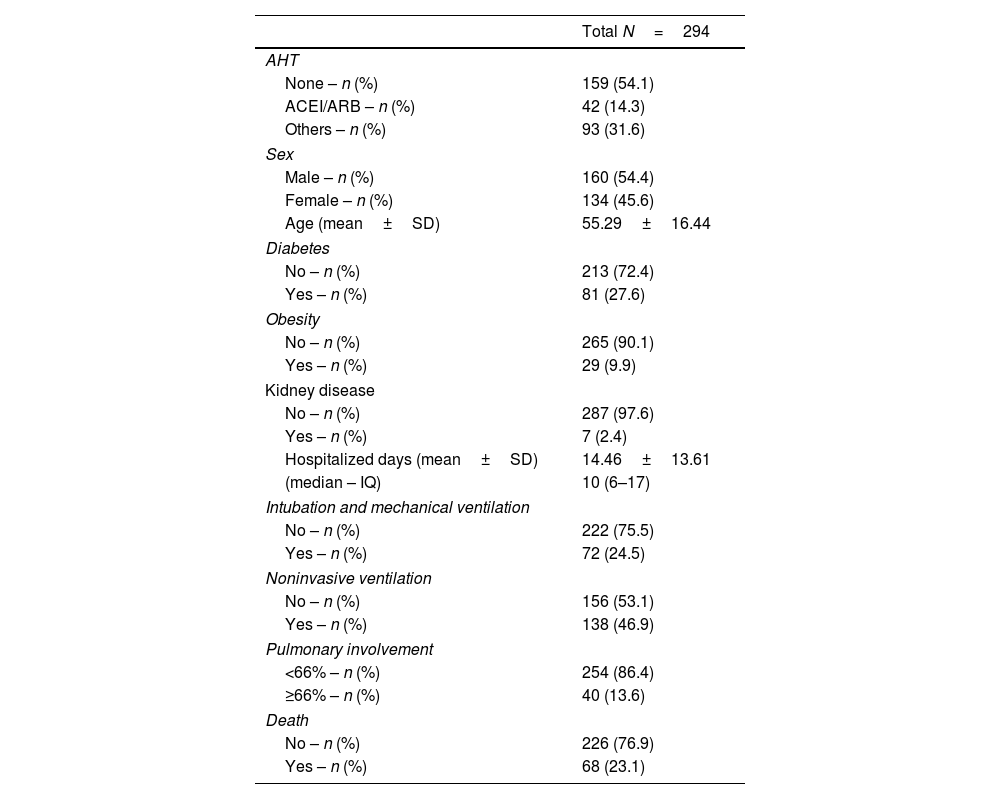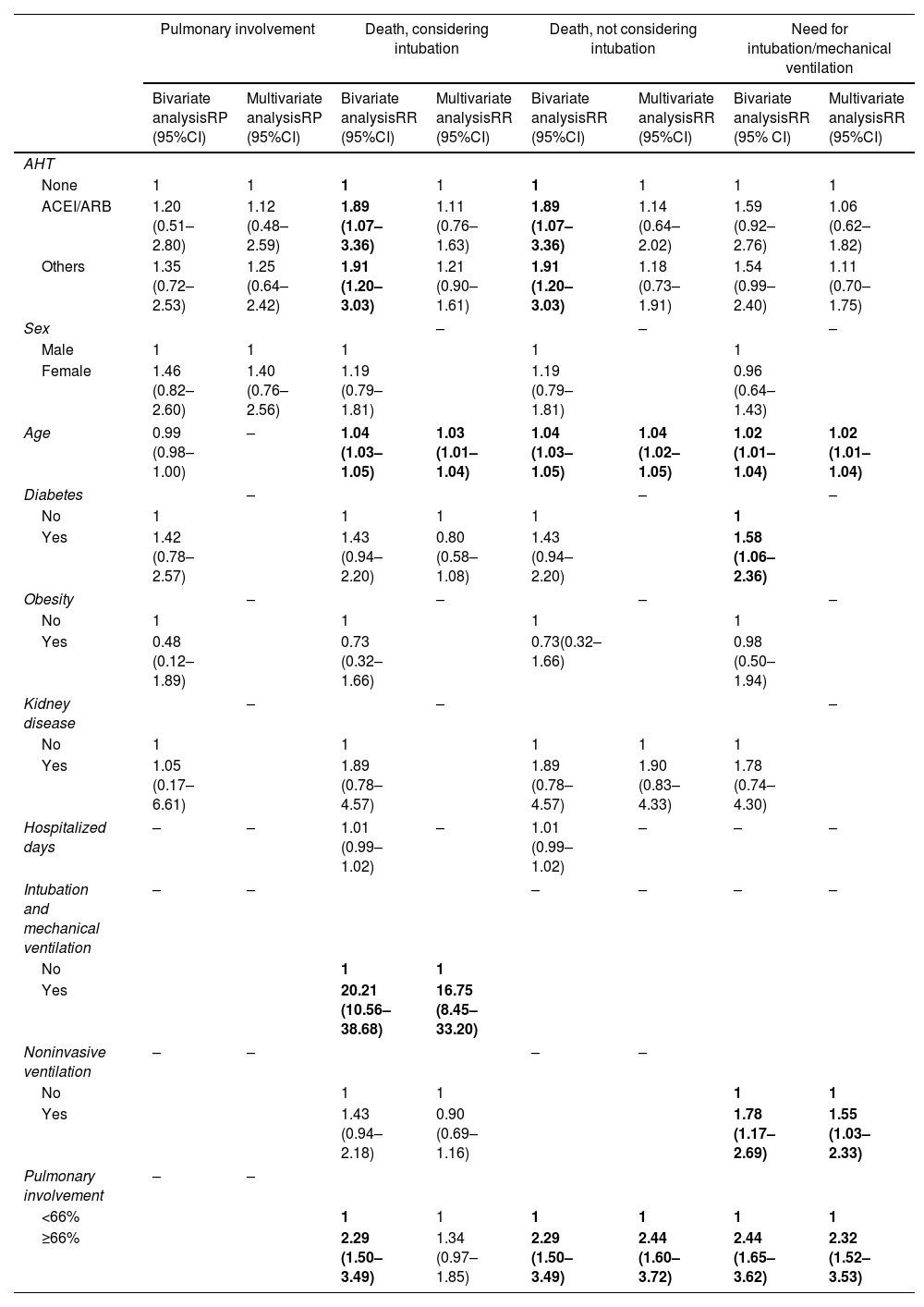COVID-19, caused by SARS-CoV-2, has spread around the world since 2019. In severe cases, COVID-19 can lead to hospitalization and death. Systemic arterial hypertension and other comorbidities are associated with serious COVID-19 infection. Literature is unclear whether antihypertensive therapy with angiotensin receptor blockers (ARBs) and angiotensin converting enzyme (ACE) inhibitors affect COVID-19 outcomes. We aim to assess whether ACEI/ARB therapy is a risk factor for worse respiratory outcomes related to COVID-19 in hospitalized patients.
MethodsRetrospective study enrolling admitted COVID-19-diagnosed patients by RT-PCR at the Hospital Geral de Fortaleza, Brazil, during 2021. Patient medical records, sociodemographic, and clinical data were analyzed. Chest CT images were analyzed using CAD4COVID-CT/Thirona™ software.
ResultsA total of 294 patients took part in the study. A cut-off point of 66% of pulmonary involvement was found by ROC curve, with patients having higher risk of death and intubation and lower 60-day survival. Advanced age (RR 1.025, P=0.001) and intubation (RR 16.747, P<0.001) were significantly associated with a higher risk of death. Advanced age (RR 1.023, P=0.001) and the use of noninvasive ventilation (RR 1.548, P=0.037) were associated with a higher risk of intubation. Lung involvement (>66%) increased the risk of death by almost 2.5-fold (RR 2.439, P<0.001) and by more than 2.3-fold the risk of intubation (RR 2.317, P<0.001).
ConclusionsAltogether, our findings suggest that ACEI or ARB therapy does not affect the risk of death and disease course during hospitalization.
La COVID-19, causada por el SARS-CoV-2, se ha extendido por todo el mundo desde 2019. En casos graves, la COVID-19 puede provocar hospitalización y muerte. La hipertensión arterial sistémica y otras comorbilidades se asocian con una infección grave por COVID-19. La literatura no está clara si la terapia antihipertensiva con bloqueadores de los receptores de angiotensina (BRA) e inhibidores de la enzima convertidora de angiotensina (ECA) afecta los resultados de la COVID-19. Nuestro objetivo fue evaluar si la terapia BRA/ECA es un factor de riesgo de peores resultados respiratorios relacionados con COVID-19 en pacientes hospitalizados.
MétodosEstudio retrospectivo que incluyó pacientes ingresados con diagnóstico de COVID-19 mediante RT-PCR en el Hospital General de Fortaleza, Brasil, durante 2021. Se analizaron las historias clínicas de los pacientes, datos sociodemográficos y clínicos. Las imágenes de TC de tórax se analizaron utilizando el software CAD4COVID-CT/ThironaTM.
ResultadosParticiparon en el estudio un total de 294 pacientes. Mediante curva ROC se encontró un punto de corte del 66% de afectación pulmonar, teniendo los pacientes mayor riesgo de muerte e intubación y menor supervivencia a 60 días. La edad avanzada (RR 1,025; P=0,001) y la intubación (RR 16,747; P<0,001) se asociaron significativamente con un mayor riesgo de muerte. La edad avanzada (RR 1,023; P=0,001) y el uso de ventilación no invasiva (RR 1,548; P=0,037) se asociaron con un mayor riesgo de intubación. La afectación pulmonar (>66%) aumentó el riesgo de muerte casi 2,5 veces (RR 2,439; P<0,001) y más de 2,3 veces el riesgo de intubación (RR 2,317, P<0,001).
ConclusionesSe concluyó que el tratamiento con BRA o ECA no afecta el riesgo de muerte y el curso de la enfermedad durante la hospitalización.










